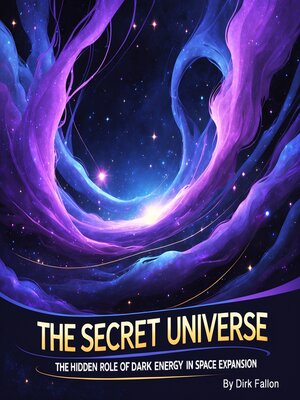The Secret Universe
audiobook (Unabridged) ∣ The Hidden Role of Dark Energy in Space Expansion
By Dirk Fallon

Sign up to save your library
With an OverDrive account, you can save your favorite libraries for at-a-glance information about availability. Find out more about OverDrive accounts.
Find this title in Libby, the library reading app by OverDrive.



Search for a digital library with this title
Title found at these libraries:
| Library Name | Distance |
|---|---|
| Loading... |
The universe, as we know it, has fascinated humanity for centuries. From the early days of observation with rudimentary telescopes to the modern era of space exploration and advanced physics, we have sought to understand the vast expanse that surrounds us. The cosmos is an immense, ever-expanding entity that encompasses everything we can observe, from distant galaxies to the tiny particles that make up the very fabric of reality itself.
The origin of the universe is a question that has long intrigued scientists and philosophers alike. The most widely accepted theory is the Big Bang Theory, which suggests that the universe began as an incredibly hot and dense point about 13.8 billion years ago. This initial singularity rapidly expanded, cooling as it grew larger, giving rise to the cosmos we observe today. This expansion continues to this very day, albeit at a slower rate than during its early moments.
In the early stages of the universe's development, only simple elements like hydrogen and helium were formed. Over billions of years, these elements clumped together to form stars and galaxies, which in turn formed more complex elements through nuclear fusion. These elements were then distributed across the universe, providing the building blocks for the formation of planets and other celestial bodies.







